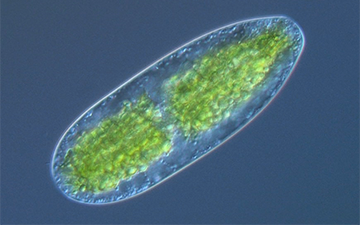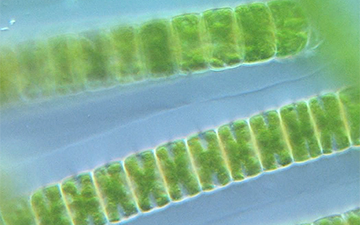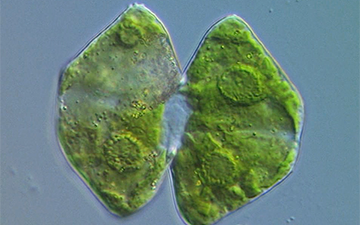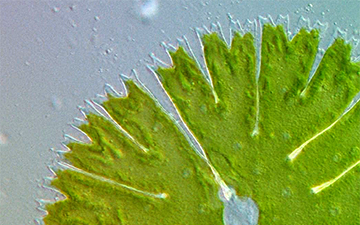Conjugatophyceae

Netrium
Netrium genus


Sorry, there is no photo available. If you have one, please submit
here
.
2 POINTS
Play: Netrium is considered an AUXOTROPH.
Fact: Netrium is an algae of the desmid family.
cool, warm
Graphic by Keeling Labwww3.botany.ubc.ca/keeling/

Hyalotheca
Hyalotheca genus


Sorry, there is no photo available. If you have one, please submit
here
.
2 POINTS
Play: Hyalotheca is considered an AUXOTROPH.
Fact: Hyalotheca are a genus of filamentous green algae.
cool, warm
Graphic by Keeling Labwww3.botany.ubc.ca/keeling/
In taxonomy, Hyalotheca is a genus of algae, specifically of the Desmidiaceae.[1] (From: Wikipedia, July 2015) read more

Cosmarium
Desmidiales order


Sorry, there is no photo available. If you have one, please submit
here
.
2 POINTS
Play: Cosmarium is considered an AUXOTROPH
Fact: Desmids tend to assume highly symmetrical and attractive shapes.
cool, warm
Graphic by Keeling Labwww3.botany.ubc.ca/keeling/
In taxonomy, Cosmarium is a genus of algae, specifically of the Desmidiaceae.[1] In this complex genus the cells are very variable. All are constricted in the middle.[2] (From:Wikipedia, July 2015) read more

Micrasterias
Micrasterias genus


Sorry, there is no photo available. If you have one, please submit
here
.
2 POINTS
Play: Micrasterias is considered an AUXOTROPH
Fact: Micraserias is a type of green algae, and always has shapes that exhibit bilaterial symmetry.
Graphic by Keeling Labwww3.botany.ubc.ca/keeling/
Micrasterias is a unicellular green alga of the Desmidiales order. Micrasterias, commonly known as green alga, is a eukaryotic, unicellular organism, and species vary in size reaching up to hundreds of microns. Micrasterias displays a bilateral symmetry, with two mirror image semi-cells joined by a narrow isthmus containing the nucleus of the organism. This dual […] read more